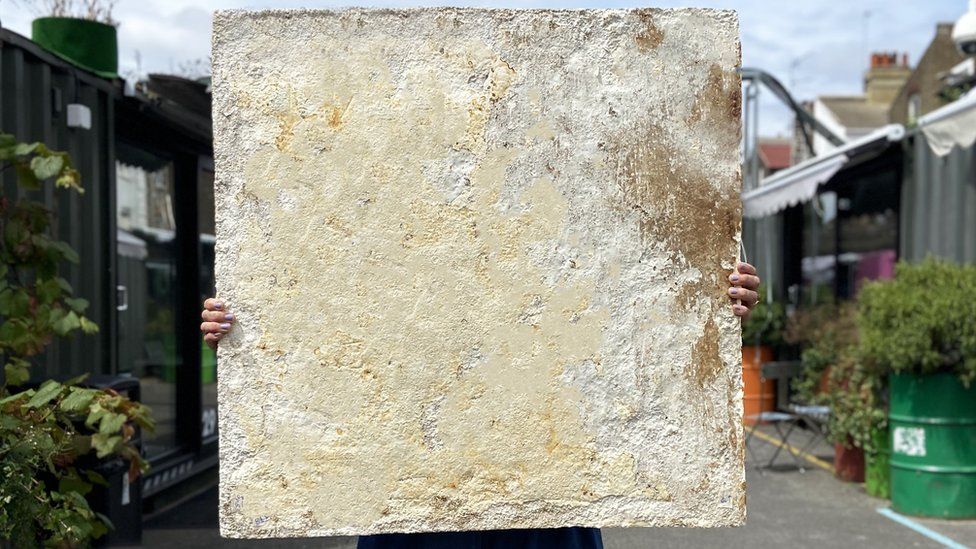Brussels company PermaFungi has developed a new kind of mycelium-based wall insulating panel, which aims to reduce waste & provide a more sustainable alternative to traditional building materials, as per reports.
The mushrooms are grown with hay & discarded coffee grounds collected from cafes and fast-food restaurants across Brussels. The mixture is stored in hanging bags in damp warehouses below Brussel’s Tour and Taxis. After two weeks, the fungi begin to squeeze via the holes that pierce in the bags and are harvested and taken to be eaten.
The remaining soil, mycelium (mushroom seeds), and straw are then reused and mixed with additional spores to create the final shaped insulation panels. The panels themselves are a by-product of food production and will help cut down on waste from eco-friendly alternative protein sources.
“Nothing is wasted,” explains Victor Thomas, the company’s scientific director. “At the end of our production chain, we recover the digested coffee grounds and spores and reinsert them to produce insulation panels at the beginning of our production chain.”
The field of myco-materials is rapidly developing and offers a novel approach to sustainable construction materials, for use in both homes and businesses. American myco-material company Mycoworks has created a whole series of mycelium imitation leathers and materials, which luxury fashion brand Hermès has already used.
PermaFungi has already developed a line of sustainable lampshades made from mycelium substrates. In the long-term, the Belgian company wants its mycelium products to compete with plastics, including in the fields of packaging and insulation.
According to the producers, myco-materials create ten times less carbon dioxide and use eight times less energy than polystyrene foam. Furthermore, the material is 100% biodegradable, making it ideal for packaging.
“We are hoping to use it for other applications in the medium term, in particular coffins and funeral urns. The construction and packing sectors represent 52% of plastic consumption worldwide and presents a major societal and economic challenge,” the company stated.
By the end of 2025, the company is aiming to produce around 12 tonnes of myco-materials per month, thereby recycling fifteen tonnes of waste.



